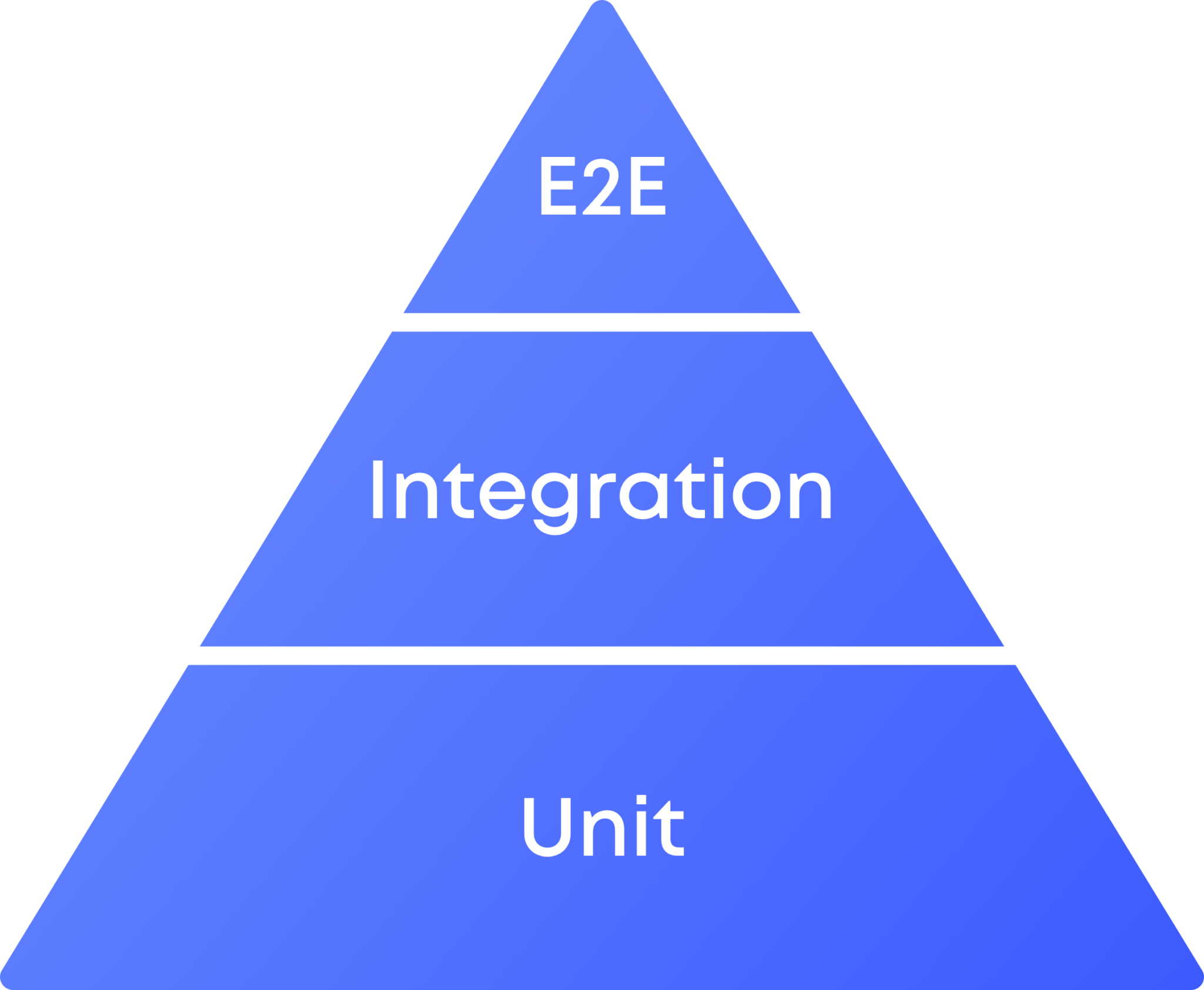As the field of artificial intellect (AI) evolves, thus will the complexity involving the code it generates. AI-generated signal has become a good useful tool with regard to developers, automating almost everything from basic functions to complex algorithms. However, similar to other code, AI-generated program code is not proof to errors, glitches, or unexpected conduct. To ensure that AI-generated code operates correctly and proficiently, thorough testing is usually essential. Unit assessment is one associated with the most effective techniques to verify typically the functionality of personal units or parts of a system.
This article provides a new comprehensive explained product testing frameworks of which can be applied to test AI-generated code, explaining why testing AI-generated computer code presents unique difficulties and how builders can implement these kinds of frameworks effectively.
Just what Is Unit Tests?
Unit testing is the process of testing the littlest parts of a credit card applicatoin, usually individual features or methods, to make certain they behave because expected. These checks isolate each part of code and validate they operate under specific situations. For AI-generated signal, this step becomes critical because even if the AI successfully generates functional code, generally there may still end up being edge cases or perhaps scenarios where typically the code fails.
The Importance of Unit Testing for AI-Generated Computer code
AI-generated code might look proper syntactically, but no matter if it performs the intended function while expected is yet another make a difference. Since the AI model doesn’t «understand» the purpose of the code that generates in the manner individuals do, some rational or performance concerns might not always be immediately evident. Unit testing frameworks usually are essential to mitigate the risks of such issues, guaranteeing correctness, reliability, in addition to consistency.
Key Good Unit Test AI-Generated Code:
Quality Assurance: AI-generated code may possibly not always keep to the greatest practices. Unit testing ensures that it functions properly.
Preventing Reasonable Errors: AI is definitely trained on vast datasets, and the particular generated code may sometimes include completely wrong logic or assumptions.
Ensuring Performance: Inside certain cases, AI-generated code might introduce inefficiencies that the human coder would likely avoid. Unit checks help flag these types of inefficiencies.
Maintainability: More than time, developers may modify AI-generated code. Unit tests make sure that any adjustments do not crack existing functionality.
Typical Challenges in Assessment AI-Generated Code
Although testing is important, AI-generated code positions specific challenges:
Variable Code Generation: Given that the code is usually dynamically generated, this might produce various outputs with minor variations in plugs. This makes traditional test coverage challenging.
Unpredictability: AI models usually are not always predictable. Even though two bits of code function the same objective, their structure may vary, which complicates testing.
Edge Case Id: AI-generated code may possibly work for many cases but are unsuccessful in edge cases that a developer might not foresee. Unit testing must consideration for these.
Well-known Unit Testing Frameworks for AI-Generated Program code
To address these kinds of challenges, developers can leverage established device testing frameworks. Below is a detailed review of some of the most broadly used unit screening frameworks which might be well-suited for testing AI-generated code.
1. JUnit (for Java)
JUnit is one associated with the most popular unit testing frameworks intended for Java. It’s easy, widely adopted, and even integrates seamlessly using Java-based AI top models or AI-generated Espresso code.
Features:
Observation such as @Test, @Before, and @After allow for easy setup and teardown of tests.
Preuve to verify the correctness of program code outputs.
Provides thorough test reports and provides for integration with build tools just like Maven and Gradle.
Best Use Situations:
For Java-based AI models generating Coffee code.
When regular, repeatable tests are needed for dynamically generated functions.
2. PyTest (for Python)
PyTest is a highly flexible unit screening framework for Python and is frequently used in AI/ML advancement due to Python’s dominance in these kinds of fields.
Features:
An automatic test discovery, generating it easier to be able to manage numerous device tests.
Support intended for fixtures that allow developers to define baseline code setups.
Rich assertion rapport, which simplifies debugging.
Best Use Situations:
Testing AI-generated Python code, especially with regard to machine learning applications involving libraries just like TensorFlow or PyTorch.
Handling edge cases with parameterized tests.
3. Unittest (for Python)
Unittest is certainly Python’s built-in device testing framework, producing it accessible in addition to easy to incorporate with most Python projects.
Features:
Check suites for managing and running several tests.
Extensive support for mocks, enabling isolated unit screening.
Structured around analyze cases, setups, plus assertions.
Best Employ Cases:
When AI-generated code needs to integrate directly using Python’s native tests library.
For clubs looking to keep assessment frameworks consistent along with standard Python your local library.
4. Mocha (for JavaScript)
Mocha is a feature-rich JavaScript test framework praised for its simplicity and flexibility.
Features:
Supports asynchronous testing, which is great for AI-generated code reaching APIs or perhaps databases.
Allows for easy integration using other JavaScript libraries like Chai for assertions.
Best Employ Cases:
Testing JavaScript-based AI-generated code, for example code used in browser automation or perhaps Node. js apps.
When dealing together with asynchronous code or even promises.
5. NUnit (for. NET)
NUnit is a remarkably popular unit tests framework for. INTERNET languages like C#. It’s known for its extensive range of features plus flexibility in composing tests.
Features:
Parameterized tests for assessment multiple inputs.
Data-driven testing, which is useful for AI-generated code where multiple data sets are involved.
Integration with CI/CD pipelines through resources like Jenkins.
Top Use Cases:
Tests AI-generated C# or F# code inside of enterprise applications.
Perfect for. NET developers who require comprehensive testing with regard to AI-related APIs or even services.
6. RSpec (for Ruby)
RSpec is a behavior-driven development (BDD) instrument for Ruby, acknowledged for its expressive and readable format.
Features:
Is targeted on «describe» and «it» hinders, making tests easy to understand.
Mocks and stubs assist for isolating program code during testing.
continue reading this spending readable construction for tests.
Best Use Cases:
Tests AI-generated Ruby program code in web applications.
Writing tests that emphasize readable plus expressive test situations.
Guidelines for Product Testing AI-Generated Code
Testing AI-generated computer code requires a strategic technique, given its natural unpredictability and energetic nature. Below are usually some guidelines in order to follow:
1. Create Tests Before AJE Generates the Program code (TDD Approach)
Although the code is developed by an AJAI, you can work with the Test-Driven Development (TDD) approach by writing tests of which describe the predicted behavior with the codes before it really is produced. This helps to ensure that typically the AI produces code that meets the pre-defined specifications.
2. Use Parameterized Assessment
AI-generated code may possibly need to deal with an array of inputs. Parameterized tests allow an individual to test the same unit with distinct data sets, making sure robustness across several scenarios.
3. Make fun of Dependencies
If the particular AI-generated code interacts with external systems (e. g., databases, APIs), mock these kinds of dependencies. Mocks make certain you are testing the program code itself, not the external systems.
some. Automate Your Tests Process
For AI-generated code, you may need to manage tests repeatedly together with different variations. Robotizing your unit assessments using continuous integration/continuous deployment (CI/CD) canal makes certain that tests work automatically, catching concerns early.
5. Keep an eye on for Code Quality
Even if AI-generated code passes unit testing, it might not adhere to code best practices. Use resources like linters in addition to static code analysis to check on for issues such as security weaknesses or inefficient program code structures.
Conclusion
AI-generated code offers a new powerful solution with regard to automating coding responsibilities, but like any program code, it requires thorough testing to make sure reliability. Unit assessment frameworks provide a systematic approach to check individual aspects of AI-generated code, catching potential issues early in the development method. By using the right unit testing framework—whether it’s JUnit, PyTest, Mocha, or others—and following greatest practices, developers can create a robust testing surroundings that ensures AI-generated code performs as expected in various cases.
As AI-generated code becomes more very common, the advantages of effective unit testing will only grow, causeing this to be a good essential skill for modern developers.







Deja una respuesta